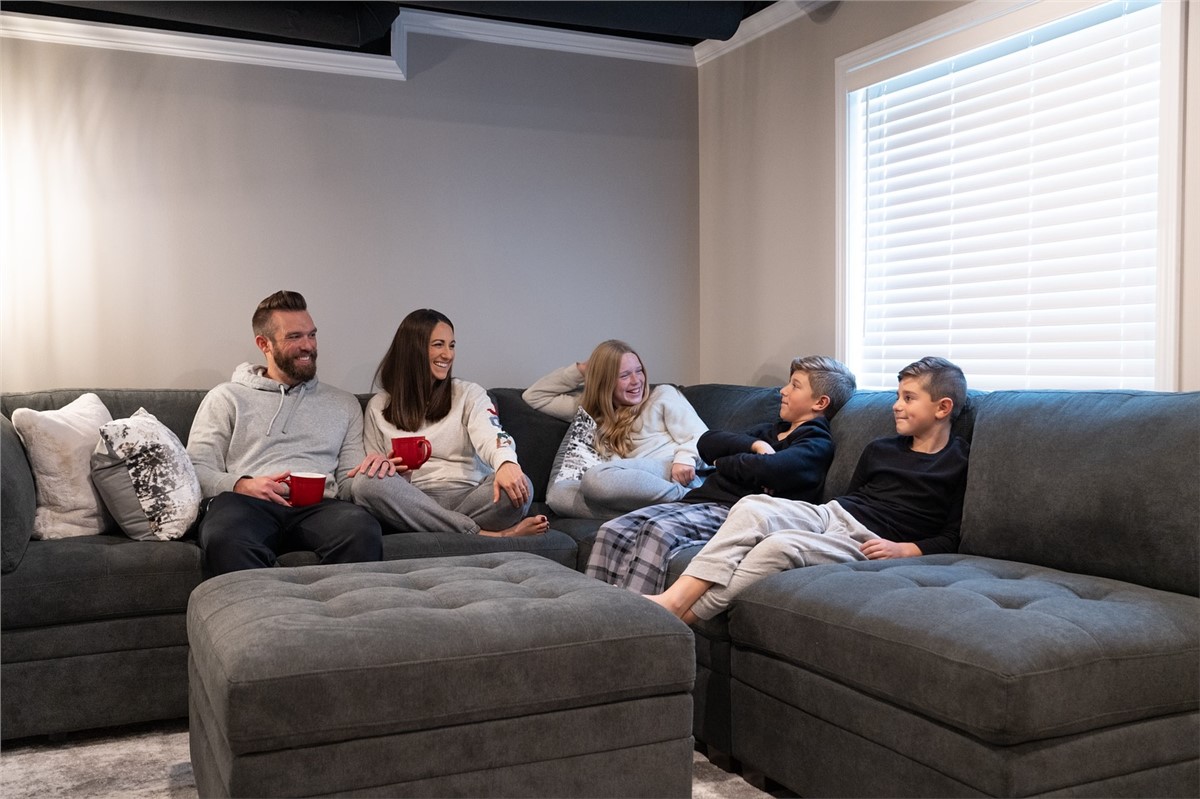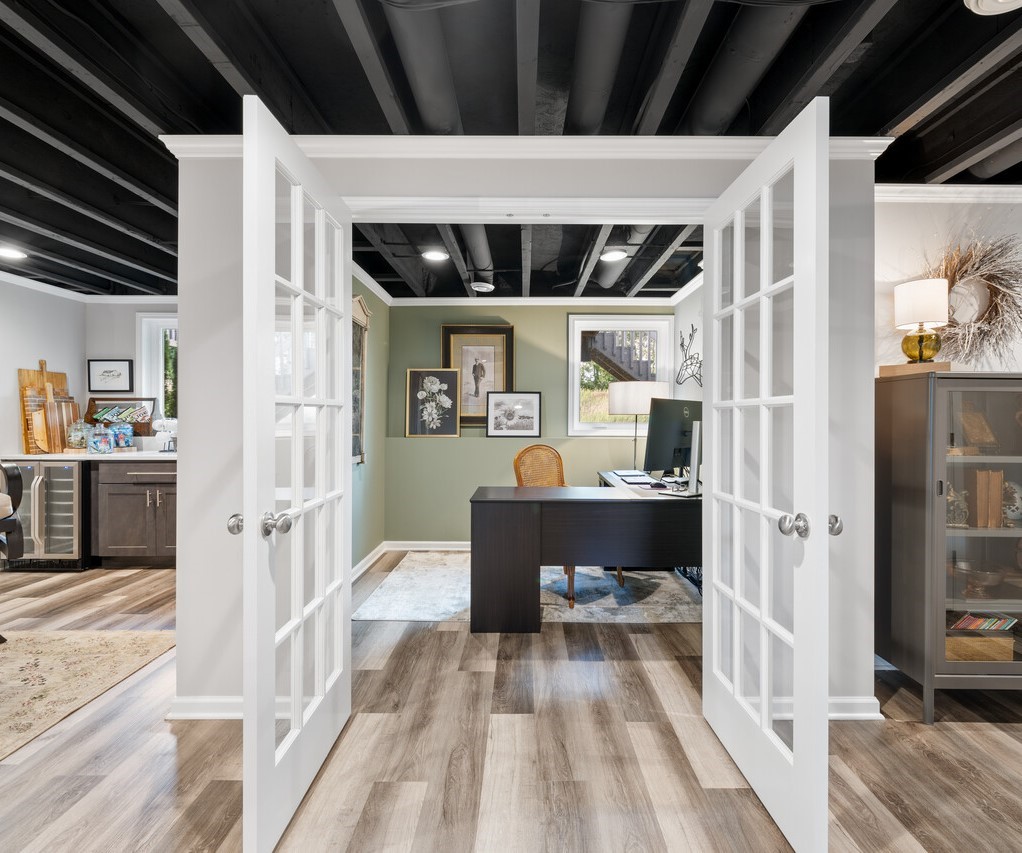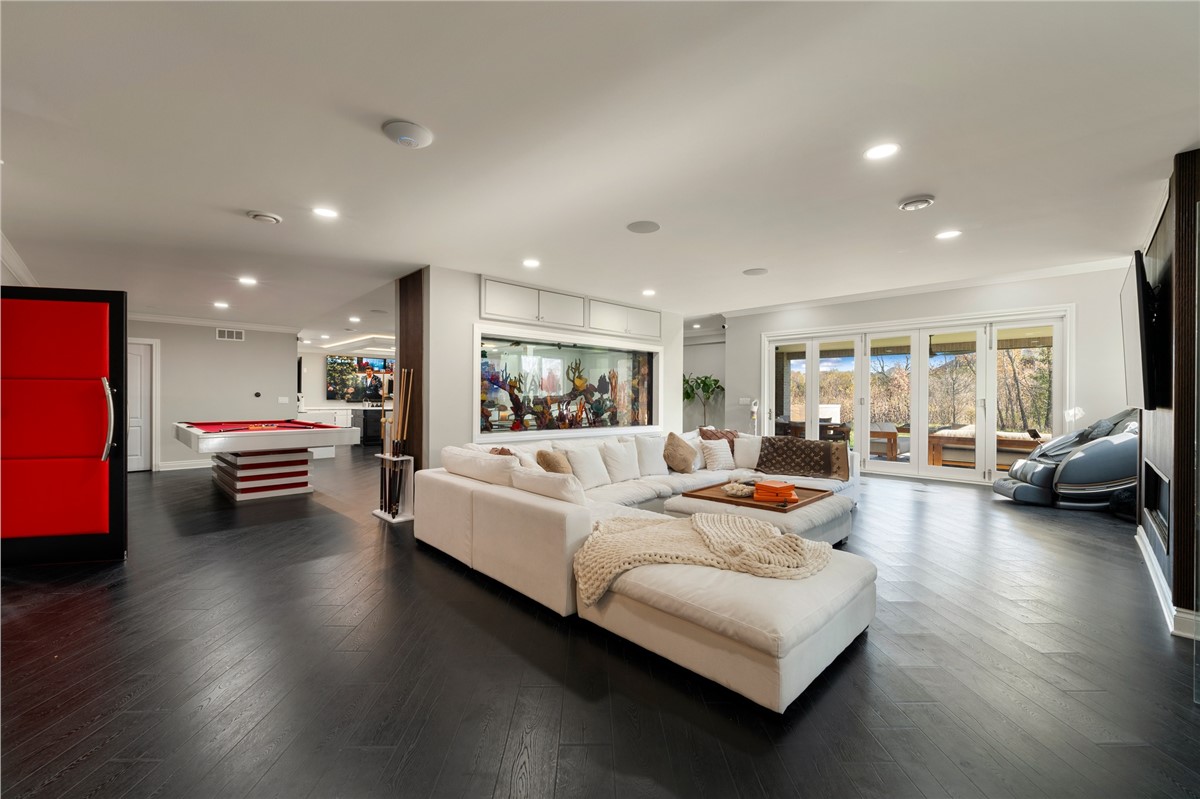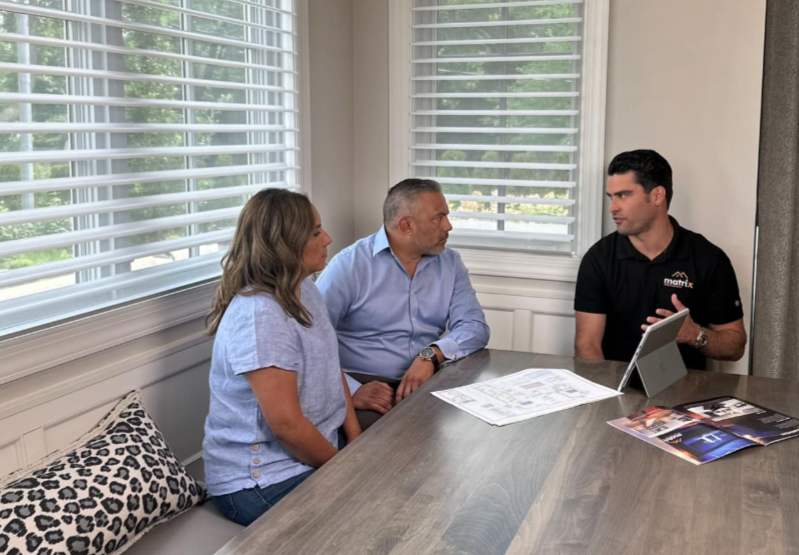Nobody wants a humid house, basement, or otherwise. Humidity makes the cold of winter feel colder, and the swelter of summer that much more unbearable. What's worse is that your basement is one of the spaces in your home that's most prone to mold. A humid basement at best is uncomfortable, and at worst, stinks of mildew and can harbor dangerous molds and fungi.
For most people, your basement is where your ventilation system lives. If you've got mold and mildew growing, your HVAC will blow that smell and those spores throughout your house. Tackling the humidity problem is the first step to enjoying a safe, healthy, comfortable basement, all year round.
What is the ideal basement humidity?
For most people, a comfortable humidity level in the basement is about 30-50%. Because the basement is below ground and tends to be a bit cooler, moisture in the air increases more quickly in this space, especially during the summer. When it starts to creep over 60%, you run the risk of growing microbes that make everything smell and potentially become unsafe.
Fortunately, there are some simple steps you can take right now to lower your basement's humidity.
Stop the leaks
Basement windows are often the least efficient for one reason or another. A small gap in the seal at ground level can let far more moisture and humidity in than you might think, so fixing that is critical. Beyond windows, leaks in your pipes or cracks in your foundation are also places where water can quickly accumulate. Hiring a professional to seal up spaces in your foundation or fix even small leaks in your plumbing can curb basement humidity.
Additionally, if your basement tends to seep or flood when it rains, you will want a contractor to fully seal it. This type of water invasion can quickly cause cumulative damage that can ruin a basement and cause a serious mold problem.
Invest in a good dehumidifier
A dehumidifier - or several - can draw moisture out of the air and drop the humidity as well. While there are multiple sizes of units, you want something that can handle the full square footage of your basement and then some, especially during the summer. Most free-standing models can be set to specific humidity and will run until that level is reached; you just have to ensure you're emptying them regularly.
Install (or improve) your ventilation
Sometimes it's not that the basement isn't sealed well, but rather, it's not ventilated in the right way. While you don't want leaks in your foundation or windows, you can trap moisture in your basement without adequate ventilation. A good exhaust system will keep your basement cooler and less humid throughout the year. Basement mold prevention starts with good airflow.
It's (not) in the walls
When your finished basement is wood and traditional drywall, there are ample opportunities for mold to flourish. Steel walls are impervious to mold growth, and purple drywall systems inhibit dust and mold. If you're considering a finished basement, the best place to start is with material that will inhibit mold growth.
Fight summer basement humidity
Whether you're investing in a finished basement or you want to remodel an existing space, Matrix Basement Systems has your back. Basement mold prevention relies on humidity control, and humidity control starts with the walls. When combined with our purple drywall tech, we can install steel walls that will keep mold, bacteria, and other microbes to a minimum.
Creating a proper ventilation system will help keep humidity down, and we can help with that, too. If you're looking for a Chicago basement remodeler to give you some ideas on how to craft the perfect space, Matrix Basement Systems can help. Contact us today to get a free quote - our team can even help with inspiration on how to properly design the basement of your dreams.
Tags
Subscribe to Matrix Basements's Blog







Comments